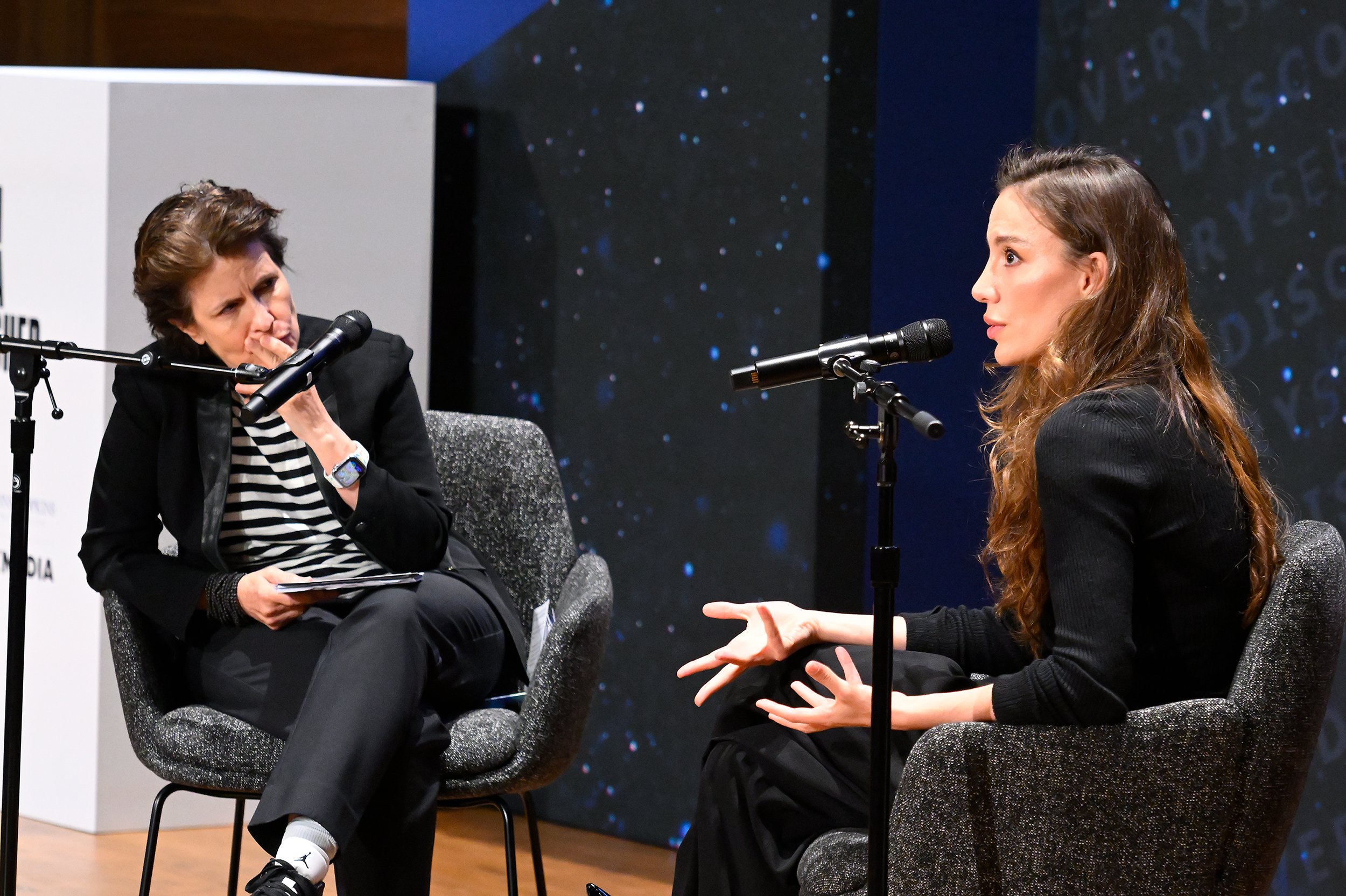What Mira Murati wants you to know about OpenAI
Murati, the chief technology officer at ChatGPT’s parent company, shares what she wants the public to know about AI, its risks, and its potential

Mira Murati, OpenAI’s chief technology officer, is perhaps most well-known for serving as the company’s CEO for a brief period in between executive Sam Altman’s firing and reinstatement, a time known inside OpenAI as “the blip.”
“It was kind of stressful,” Murati said of her time as CEO during a recent taping of On with Kara Swisher held at the Johns Hopkins University Bloomberg Center.
As CTO of OpenAI, the company behind ChatGPT, Murati has become one of the most powerful people in the technology industry, even if she is often overshadowed by Altman. Here’s what you should know about her:
- She’s optimistic about AI.
A running theme in the conversation between Murati and Swisher was the journalist’s skepticism about the responsible use of AI and the CTO’s insistence that the potential far outweighs the risk. Murati called Swisher’s take “hopeless” and defended the technology.
“AI is a really incredible and magical technology, but the breadth, the reach, the consequence, is also great,” she said. “Our entire world is engineering—like our cities, our bridges, everything—and there’s always risk that comes with that, and you manage that risk with responsibility.”
- Murati has a “strong partnership” with Altman.
Murati praised Altman, saying, “Sam is a visionary, who has great ambition. And he’s built an amazing company where we have a strong partnership.”
Still, she admitted the pair weren’t “entirely coordinated” when it came to selecting the voice used for ChatGPT’s new voice capabilities. After she chose the voice actor for “Sky,” Altman reached out to actress Scarlett Johansson’s team to ask for use of her voice. The discrepancy led Johansson to send two letters asking the company to detail how it developed Sky’s voice.
- She thinks the debate over AI safety vs. progress is overstated.
Much of the discussion surrounding AI advances in general and OpenAI, in particular, has focused on a debate between those who believe the pace of research should slow down and those who want it to speed up. Two of the company’s top safety experts recently resigned, with one claiming, “Over the past years, safety culture and processes have taken a back seat to shiny products.”
Murati disagreed with that assignment. “Nobody wants a product that is going to create safety or reputational risk,” she said.
Also see
OpenAI’s Mira Murati is optimistic about AI. Should she be?
Veteran tech reporter Kara Swisher offered Mira Murati, OpenAI’s chief technology officer, a piece of advice she’s offered to many tech company leaders before during a recent taping of her podcast, On with Kara Swisher, at the Johns Hopkins University Bloomberg Center.
“If you’re in a ‘Black Mirror’ episode, maybe you shouldn’t make it,” Swisher said, invoking Netflix’s show that explores the dark side of technology. Swisher’s comments came after she described a forthcoming OpenAI tool capable of recreating a person’s voice based on a 15-second recording.
Murati resisted on Swisher’s assessment, calling it a “hopeless approach.” She added, “These technologies are amazing, and they have incredible promise. We can get this right.” Read more
What to know about AI and the upcoming elections
Adrian Fontes, Arizona’s secretary of state, calls the election role-playing exercise he coordinated to prepare for the coming elections, “Dungeons & Dragons for election administrators.”
The program brought together election officials, vendors, law enforcement members, and officials from local, state, and federal agencies to consider scenarios that could affect voting, including an AI-generated video of Fontes sharing false information.
Fontes was joined by his counterpart in Georgia, Brad Raffensperger, and Johns Hopkins University President Ron Daniels for a panel discussion about AI and the coming election, moderated by veteran tech reporter Kara Swisher. Four key takeaways from their conversation
Q+A: How election experts are thinking about the 2024 elections
Nearly half the world’s population are expected to vote in 2024 as more than 60 countries around the globe hold elections. Looming over those votes is the potential use of artificial intelligence to disrupt campaigns and elections.
Scott Warren, a visiting fellow at the SNF Agora Institute at Johns Hopkins University and a visiting fellow at the German Marshall Fund (GMF), recently attended a convening of global election officials held in Brussels. There, he heard about their efforts to prepare for an AI-fueled election season. Read more on the Hub
Kara Swisher launches AI interview series at Hopkins Bloomberg Center
Journalist Kara Swisher will interview OpenAI’s Mira Murati on Monday, June 10, as the inaugural guest of a four-part live event series hosted at the Johns Hopkins University Bloomberg Center in Washington, D.C.
Each of the four live events in the new Discovery Series will focus on a different AI-related issue and feature Swisher recording an interview with a topic-specific guest for her podcast, On with Kara Swisher, and a panel discussion moderated by Swisher with leading experts from Hopkins and other organizations. Read more